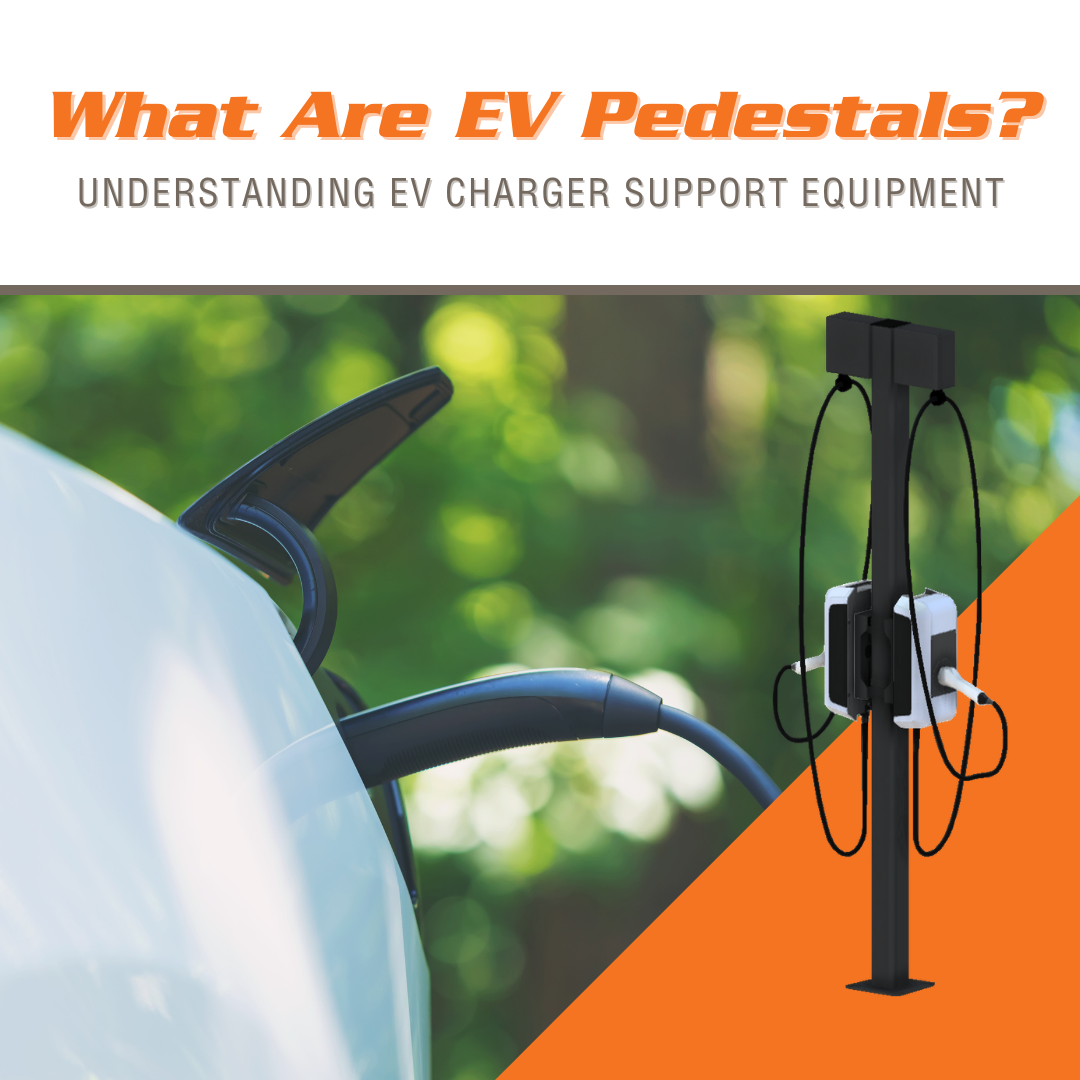We use cookies to make your experience better. To comply with the new e-Privacy directive, we need to ask for your consent to set the cookies. Learn more.
What Are EV Pedestals? Understanding EV Charger Support Equipment
If the nations of the world keep their current transportation and energy policies, the global fleet of electric vehicles (EVs) will grow to 145 million units by the end of the decade. If many governments adopt certain sustainability initiatives, the fleet could grow to 230 million vehicles by 2030. That will be around 12 percent of all vehicles, everywhere.

All of those vehicles will need chargers — and if you plan on transitioning to an all-electric commercial fleet, it’s time to start building that infrastructure today. When you start your research, however, you may find that the terminology surrounding EV charging support equipment can be confusing to newcomers. For example, what would you call a post, pole, or stand that elevates an EV charger for easy access and greater protection?
Some call it an “EV charger stand.” Others call it an “EV pedestal.” In fact, these two terms are constantly vying for dominance in Google searches, swapping places seemingly week by week. According to Google Trends data, interest in the search term “EV pedestal” reached a score of 79 out of 100 the week of September 18, 2022. Meanwhile, “EV charger stand” scored 0 out of 100. Two weeks later, the search data flipped: Interest in “EV charger stand” was up to a score of 53, while no one was searching for “EV pedestal.”
These confusing signals suggest that we’re all a little confused over terminology at this early stage in our collective EV adoption. Here’s a simple explanation of what industry insiders mean by “EV pedestal” — and why these EV stands are essential for safe, compliant, and effective EV charging stations.
What Are EV Pedestals?
An EV pedestal is a thick pole or narrow stand designed to support EV chargers, connectors, cables, and cable management kits. Typically made of steel or aluminum most EV pedestals stand between four and eight feet high. (Note that, regardless of the overall height of the EV pedestal, chargers may be posted lower on the pole for more convenient access and ADA compliance.) These stands may support one or more chargers, creating multiple EV charging stations with a single pedestal.
Other terms for an EV pedestal include EV charging bollard, EV charger mounting post, and, of course, EV charger stand. If you encounter any of those in your research, know that they all refer to the same equipment. But what exactly does an EV pedestal do?
The ideal EV pedestal strikes a balance between protecting EV charging equipment and providing quick, convenient access during charges. It also helps with regulatory compliance. According to Article 625 of the National Electrical Code (NEC), EV chargers must be installed at least 24 inches above ground level for outdoor charging stations. For indoor installations, EV chargers must stand at least 18 inches high. An EV pedestal provides compliance with this and other electrical regulations — but the EV charger stand itself isn’t all the support equipment you’ll need.
Integrating Cable Management Kits with EV Pedestals
Article 635 of the NEC also requires cable management solutions for all charging cables over 25 feet — and a cable handling solution provides strong benefits even when charging cables are shorter. EV Charger Cable Retractors protect cables by holding them out of harm’s way between uses. During charges, these Cable Retractors allow users to conveniently access the full length of the cable with a light pull.
To create the most effective EV charging stations, choose EV pedestals with integrated cable management equipment. The EV Charger Pedestal and Cable Management Kit from BHS, Inc., stores one or two EV chargers, with integrated cable retractors for each charger. Powder-coated steel construction makes this EV pedestal ideal for indoor or outdoor use, and pre-drilled anchor holes make for easy installation. If you plan to build EV charging stations for your electric fleet, start with EV pedestals from BHS, Inc. Learn more by calling 1.800.BHS.9500.
